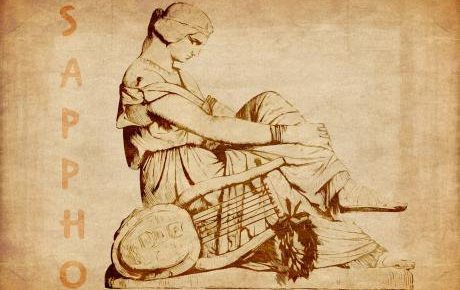Broadly speaking, there are two schools of thought on how to pronounce ancient Greek. One is to pronounce it like modern Greek, the other school of pronunciation is based on renaissance scholars and their form of pronunciation; called Erasmian pronunciation. Some modern-day scholars have attempted to recreate what their ‘best guess’ of what ancient Greek would sound like; most notably Stephen Daitz re-created and sang several books of the Iliad, Odyssey, and a few poems of Sappho. Daitz used the Erasmian method of pronunciation, in lieu of modern Greek pronunciation. I am taking no stance on either modern or Erasmian pronunciation, though I do think that Mathew Dillon’s model1 For more on this please consult Mathew Dillon’s article “The Erasmian Pronunciation of Ancient Greek: A New Perspective,” The Classical World Vol.94, no.4, 2001, pp. 323-334 it’s highly informative and a good background on the subject in general of striving for a mix between the two is a good plan. Further complicating things, ancient Greek also used to have a different kind of accent than how it is mostly read today.
Ancient Greek used a pitch accent, rather than a stress accent. As an Asiatic language, ancient Greek had pitches or ‘tones’, today marked in surviving ancient Greek texts by accent marks2 Philomen Probert, A New Short Guide to the Accentuation of Ancient Greek, (Bristol: Bristol Classical, 2003) 15. Probert’s book is also a good resource for understanding pitch and stress accent though it is mostly concerned with accentation of written (not spoken) ancient Greek These tones would alter how a word was pronounced, but rather than stressing a syllable as done in English, the pitch would raise or lower the pitch of the word part. This makes ancient Greek pronunciation extra challenging, as pitch accents are now converted into stress accents, which is more in line with English pronunciation and understanding of words. Daitz in his re-creation emphasized pitch to an extreme extent, believing it to be more accurate for an ancient Greek performance. By emphasizing the pitch, Diatz also emphasized the meter. To better illustrate some concepts of meter and pitch, I recorded the following video:
I also recorded some experimentation I did with Pitch meter and a more modern way of singing the Hymn to Aphrodite:
In comparison, here is a recording of Stephen Diatz singing the Hymn to Aphrodite:
How to sing in ancient Greek is thus a matter of scholarly choice between modern vs. Erasmian pronunciation, and pitch vs. stress accent. As always in this project, there is really no definitely ‘right’ way to do this. In my performance, I experiment with Pitch meter, but it is important to me that my ancient Greek song ‘sounds’ good to a modern ear. I am a student of ancient Greek, and have experience of both modern Greek, and Erasmian pronunciation, though overall my Greek tends to be more Erasmian. I pronounce the Greek as accurately as I can, but my song exists more in a middle ground. I have made the choice to include but not heavily stress Pitch meter because one of the main goals of this project for me is to showcase Sappho’s beauty, and in doing this I want to sing in a way I believe is the most beautiful to a modern understanding. Once more I am ‘playing’ Sappho, I am using her skill, and her words as a guide and a source of beauty that I am trying my best to interpret for a new era.


Awesome!